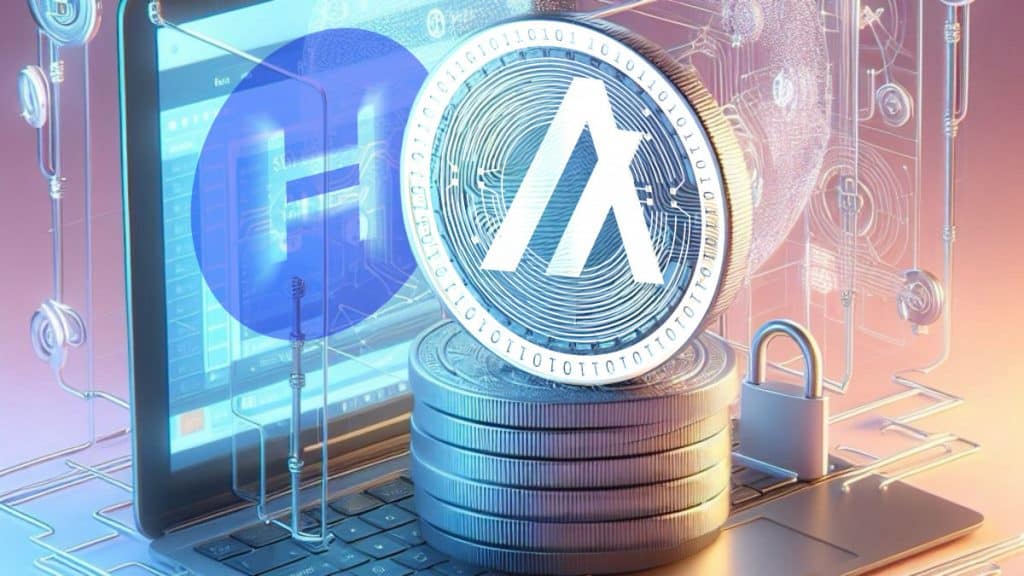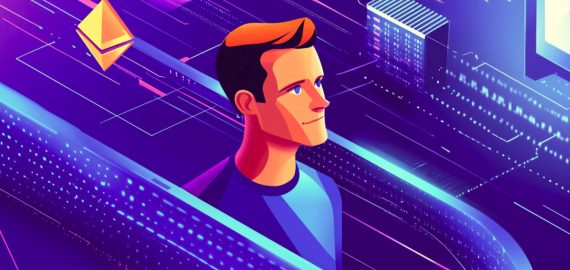Hedera and Algorand Ecosystems Establish ‘DeRec Alliance’ to Ease Decentralized Asset Recovery

In Brief
Hedera and Algorand joined forces to establish the DeRec Alliance, an open-source system to ease decentralized recovery of digital assets.

Key entities within the Hedera and Algorand ecosystems including the HBAR Foundation, Algorand Foundation, the Hashgraph Association, Swirlds Labs, the DLT Science Foundation and industry partners The Building Blocks and BankSocial, recently joined forces to establish the ‘DeRec Alliance’.
Unveiled at the CFC St. Moritz conference in Switzerland, the strategic partnership aims to develop a new interoperability recovery standard that will significantly simplify the recovery and adoption of digital assets, including cryptocurrencies and other forms of valuable assets.
In a conversation with Metaverse Post — Dr. Leemon Baird, co-founder of Hedera and co-CEO of Swirlds Labs and John Woods, CTO of Algorand Foundation shared insights on how the open-source system aims to address decentralized recovery of digital assets.
As the demand for Web3 applications surges, there is a growing desire among application providers to enhance user experiences, making them seamless, user-friendly, and accessible to a global audience. The current landscape necessitates a high level of sophistication from users, requiring them to undertake the arduous task of securing their online secrets, including digital assets, accounts, keys and passwords.
The DeRec Alliance seeks to bring cohesion to the Web3 ecosystem by providing an open-source, industry-standard methodology for digital asset recovery that is both secure and effortless across various wallets.
“The DeRec protocol allows a user to share pieces of their keys or secrets with multiple “helpers”, who can then help the user recover them if they are lost. The DeRec Alliance is building open-source libraries implementing this standard protocol to make it very easy for developers to add this ability to their software, with just a few lines of code,” Hedera’s Dr. Leemon Baird told Metaverse Post.
Dr. Leemon further explained that when users employ wallet software tailored to distinct blockchains, these applications can easily connect, enabling mutual assistance in storing and safeguarding each other’s keys. The interoperability of these apps persists even when the blockchains are incompatible, ensures a fully compatible recovery process. This facilitates the collaboration between users, enhancing the protection and recovery of their respective secrets.
Likewise, Algorand Foundation’s John Wood emphasized the core importance of user experience, stating,
“The DeRec Alliance aims to further expand Web3’s capabilities, improve user experience (UX), and encourage more users to incorporate digital wallets. It will make key recovery both safe and easy for users. This will be achieved through industry collaboration and the utilization of open-source technology.”
Easing Digital Asset Security to to Effectively Mitigate Asset Loss
Web3 applications require users to have advanced technical knowledge and take responsibility for securing their digital assets. Challenges arise in private key management, necessitating users to securely store and back up their keys to prevent asset forfeiture due to potential losses. Managing wallets across diverse applications and blockchain networks demands users to understand various wallet types, select secure options, and handle updates effectively.
The DeRec Alliance protocol aims to addresses secret management challenges by employing a system of secret sharing among a group of helpers, such as friends or businesses. These helpers can aid users in recovering their secrets or credentials when necessary, mitigating the risk of total asset loss.
“The Decentralized Recovery (DeRec) open-source protocol is a standard approach to secret management, based on secret sharing among a set of helpers, for example, friends, family, or businesses, who can step in and assist the user in recovering their secret when needed,” Algorand Foundation‘s John Wood told Metaverse Post. “Each helper’s share by itself reveals no information about the original secret, and half the helpers can give the user their shares to reconstruct the secret, even when a user has lost their phone or other two-factor recovery device.”
The protocol also includes automatic regular confirmations that helpers still have shares of secrets, and automatic re-sharing when secrets change or helpers join or leave. John Wood added that a user never reveals who the helpers are, nor even how many helpers there are, and even the helpers won’t know about one another.
Traditional account recovery methods, such as cold storage and self-custody, are security measures employed in the management of digital assets but have certain challenges. Cold storage refers to keeping private keys or wallet information completely offline and disconnected from the internet, therefore minimizing the risk of online hacking or unauthorized access. Self-custody, on the other hand, involves individuals having sole control and responsibility for their digital asset holdings.
While both cold storage and self-custody enhance security by reducing the attack surface and potential vulnerabilities associated with online exposure, users adopting these methods must also be diligent in securely managing and backing up their private keys, as loss of access to these keys could result in the irretrievable loss of digital assets.
“The DeRec Alliance protocol deals with these risks by splitting the security key up among several parties who are only known to the key holder. The helpers won’t know which part of the key they possess, or even how many helpers there are in existence,” said Algorand Foundation’s John Wood. “The protocol will eventually be extended to a decentralized form of cold storage (decentralized custody) where even the user doesn’t have the key, and the helpers must cooperate to perform transactions that use the key.”
The DeRec Alliance promises to reshape the landscape of digital asset recovery, eliminating the need for complex procedures such as cold storage and self-custody. This collaborative effort signifies a pivotal step towards a more accessible and user-friendly Web3 experience, fostering mass adoption of decentralized recovery mechanisms.
“As we look ahead to the future, we’re eager to get more entities involved to ensure that the alliance and this DeRec solution are as impactful as possible,” Hedera’s Dr. Leemon Baird told Metaverse Post. “We’re currently in active conversations with other Layer-1 and Layer-2 protocols and ecosystem partners and hope to continue building new relationships focused on further ensuring the security of Web3.”
Disclaimer
In line with the Trust Project guidelines, please note that the information provided on this page is not intended to be and should not be interpreted as legal, tax, investment, financial, or any other form of advice. It is important to only invest what you can afford to lose and to seek independent financial advice if you have any doubts. For further information, we suggest referring to the terms and conditions as well as the help and support pages provided by the issuer or advertiser. MetaversePost is committed to accurate, unbiased reporting, but market conditions are subject to change without notice.
About The Author
Victor is a Managing Tech Editor/Writer at Metaverse Post and covers artificial intelligence, crypto, data science, metaverse and cybersecurity within the enterprise realm. He boasts half a decade of media and AI experience working at well-known media outlets such as VentureBeat, DatatechVibe and Analytics India Magazine. Being a Media Mentor at prestigious universities including the Oxford and USC and with a Master's degree in data science and analytics, Victor is deeply committed to staying abreast of emerging trends. He offers readers the latest and most insightful narratives from the Tech and Web3 landscape.
More articles

Victor is a Managing Tech Editor/Writer at Metaverse Post and covers artificial intelligence, crypto, data science, metaverse and cybersecurity within the enterprise realm. He boasts half a decade of media and AI experience working at well-known media outlets such as VentureBeat, DatatechVibe and Analytics India Magazine. Being a Media Mentor at prestigious universities including the Oxford and USC and with a Master's degree in data science and analytics, Victor is deeply committed to staying abreast of emerging trends. He offers readers the latest and most insightful narratives from the Tech and Web3 landscape.


















































